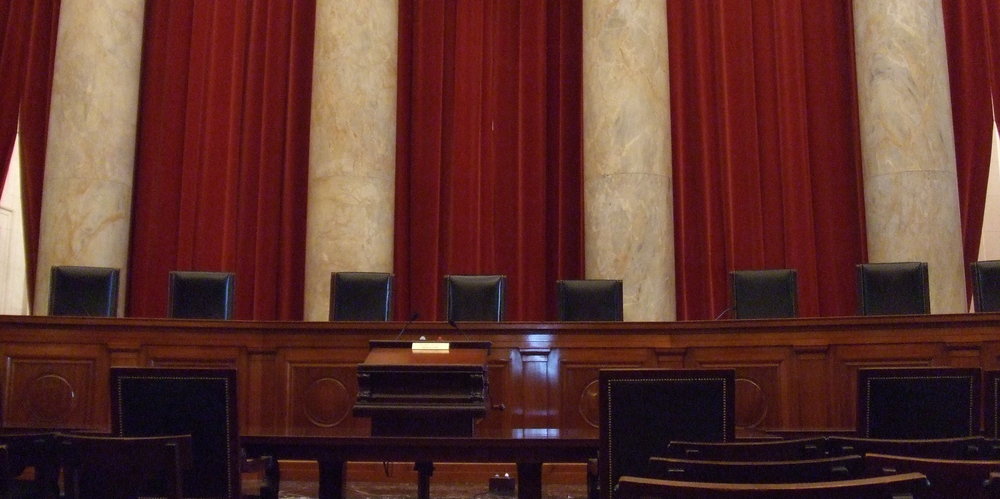
The Seventh-day Adventist Church filed a brief with the U.S. Supreme Count on Friday asking that it provide legal protections to religious denominations in a potentially landmark same-sex marriage case.
The church is concerned that a written decision in favor of same-sex marriages nationwide might contain language that could one day open the door to requiring religious organizations to provide services contrary to their beliefs, such as obliging universities to open up married student housing to same-sex couples, or hospitals to allow same-sex weddings in their chapels.
“We want to maintain the religious exemptions and protections that we currently have and ensure that we will have them down the road,” said Todd McFarland, associate general counsel for the General Conference of Seventh-day Adventists.
Read related news commentary: "Why Adventist Church Isn't Taking Side on Same-Sex Marriage Case"
The Adventist Church filed an amicus, or friend of the court, brief to the Supreme Court together with the Becket Fund for Religious Liberty, a nonprofit, nonpartisan law firm with which the church has previously teamed up on religious freedom cases.
The Supreme Court agreed in January to consider whether same-sex couples have a constitutional right to marry and whether states can ban same-sex marriage. The court is expected to hear oral arguments in late April and make a ruling by the end of its current session in late June.
While it is highly unlikely that a ruling in favor of same-sex marriage would force pastors, imams, and rabbis to perform the weddings, the case does raise serious religious liberty concerns for the Adventist Church, its schools and hospitals, and its affiliates such as the Adventist Development and Relief Agency and Adventist Community Services, McFarland said.
“All of these are expressions of the church’s ministry, and to try to keep the church in a box and say, ‘You can only conduct your ministry consistent with your beliefs in the four corners of the church on the Sabbath morning’ is not religious liberty,” McFarland said.
Potential dilemmas include church-operated universities being required to not only open up married student housing but also to rent secular sites such as auditoriums or gazebos for same-sex marriages. Church-owned hospitals, which readily care for all patients, might need to allow patients or employees to use their chapels for same-sex weddings.
“There are a number of ways that religious organizations interact with people on the issue of marriage,” McFarland said.
The 100-page brief to the Supreme Court says the church believes in showing compassion but its beliefs will always be solidly based on the Bible.
Read the amicus brief to the Supreme Court (PDF)
"The church’s Fundamental Belief on Marriage and the Family states: 'Marriage was divinely established in Eden and affirmed by Jesus to be a lifelong union between a man and a woman in loving companionship,'" the brief says. "The church also believes that 'all people, regardless of their sexual orientation, are loved by God. We do not condone singling out any group for scorn and derision, let alone abuse.' The Adventist Church’s biblically based stance has not changed and will not change regardless of this court’s ruling."
Later, the brief says: “The church recognizes … that the court’s ruling can have a significant impact on its ability to carry out its mission unless appropriate religious liberty protections are in place. The church asks that, if a constitutional right to same-sex marriage is found to exist, this secular conclusion not be imposed upon the many manifestations of its sacred work.”